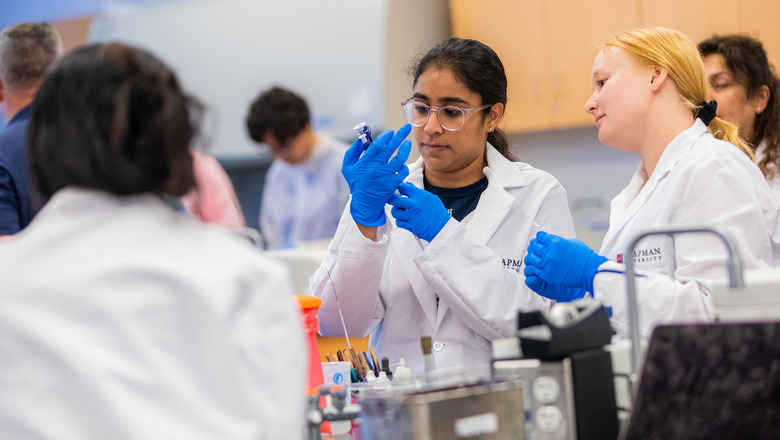 Academic performance is a major factor in selecting applicants for admission, and the GRE may be required. Applicants are expected to have a realistic and appropriate perspective of the responsibilities
of the veterinary profession.
Academic performance is a major factor in selecting applicants for admission, and the GRE may be required. Applicants are expected to have a realistic and appropriate perspective of the responsibilities
of the veterinary profession.
Please consult the online veterinary school directory for specific admissions requirements.
In addition, you should cultivate a variety of experiences that make you a strong candidate:
- Clinical experiences.
- Community service and involvement
- Research, extracurricular, and work/life experiences.
All of these things demonstrate your readiness and motivation to pursue a career in veterinary medicine.
Activities and extracurriculars
Get involved early in these and ramp up to have a well rounded resume by the time you apply. However, your first job is your academics. You need to maintain a strong academic foundation to be competitive.
- Clinical work. You can gain experience and learn about the field in a number of ways:
- Private practices
- Farms or ranches
- Animal shelters or zoos
- Community service. Give of yourself to your community. Shelters, food banks, community resource centers, after school programs. Preferably not clinically related, although in some cases there may be some crossover.
- Research. Chapman offers many opportunities for students to get involved in research as an undergrad.
- Extracurriculars. Involvement in things you’re interested in, including clubs; does not need to be clinically related. Some options:
- Pre-Vet Society
- Beta Beta Beta
- First Aid
Academics/prerequisites
These are the general courses you should take. There may be some programs that have additional or fewer requirements. Always check with the programs to confirm.
In addition to the courses listed below, Psychology and Communication are recommended.
|
Required subjects |
Course options |
|---|---|
|
Biology (2 semesters with labs) |
• BIOL 204 Biology AP credit generally not accepted |
|
General/Inorganic Chemistry (2 semesters with labs) |
• CHEM 140 and CHEM 140L Chemistry AP credit generally not accepted |
|
Organic Chemistry (2 semesters with lab) and Biochemistry (1 semester) |
• CHEM 230 and CHEM 230L (O-Chem I) |
|
English Composition (2 semesters) |
• ENG 103 |
|
Calculus (1 semester) |
MATH 110 or MATH 111 (or AP credit) |
|
Animal Science (1 semester) |
BIOL 433 (Animal Behavior) |
|
Physics (2 semesters with labs) |
PHYS 101 and PHYS 102 or PHYS 107 and PHYS 108 |
|
Statistics (1 semester) |
Most stats courses; options include MATH 203, PSYC 203, MATH 303 (or AP credit) |
